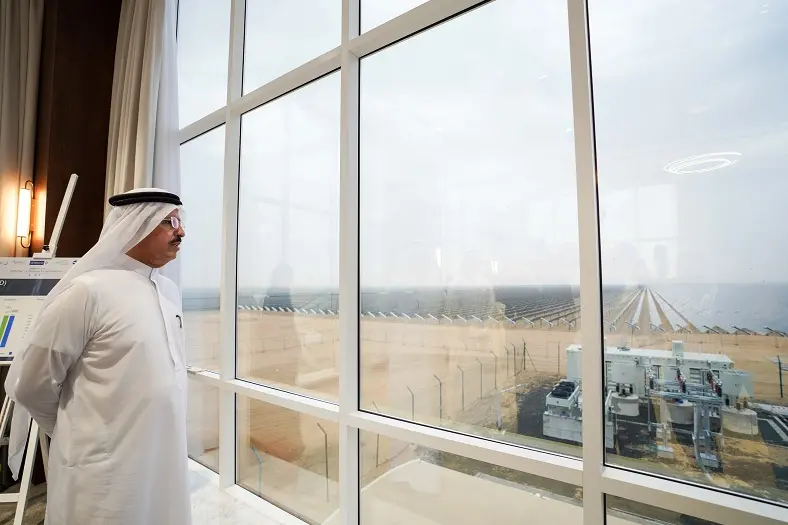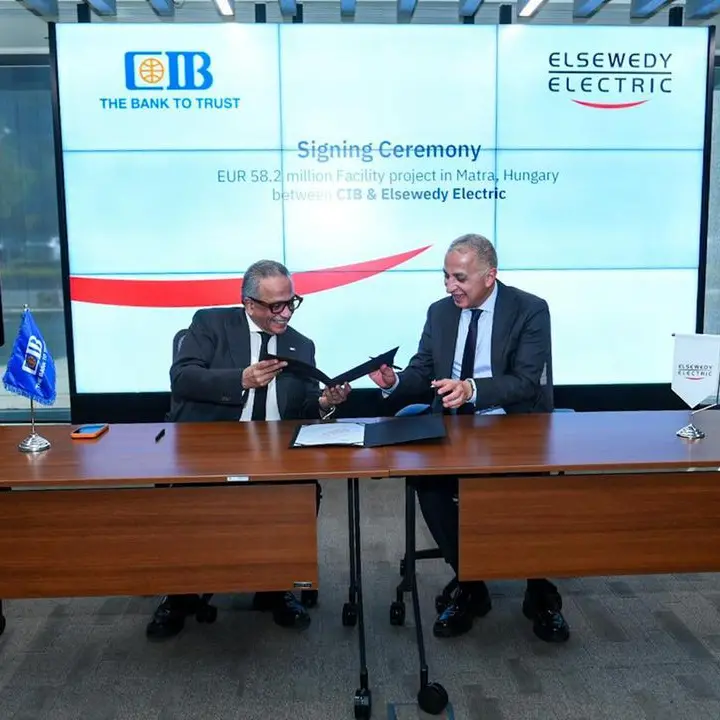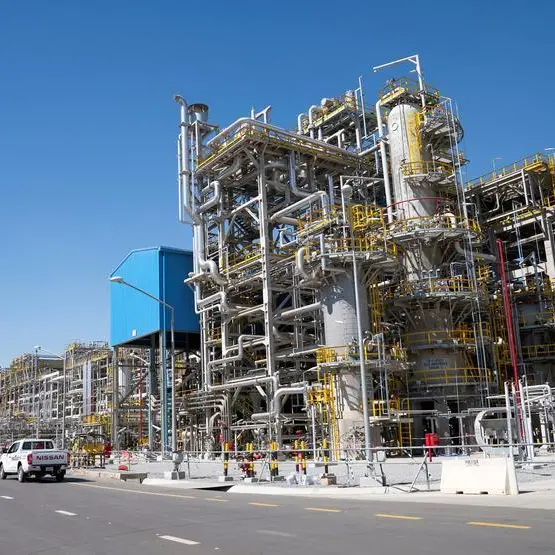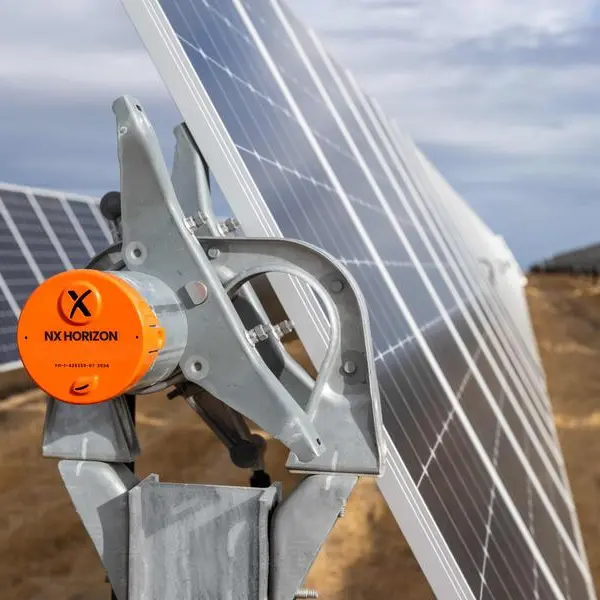PHOTO
Dubai Electricity and Water Authority (DEWA) announced on Sunday that the 950-megawatt (MW) Phase 4 of Mohammed bin Rashid Al Maktoum Solar Park is 92 percent complete.
The DFM-listed utility said in a press statement that 417MW from Phase 4 have been connected to grid. This includes 217MW from photovoltaic (PV) solar panels, and 200MW from parabolic basins.
Phase 4, which is being developed under the Independent Power Producer (IPP) model at a total investment of 15.78 billion UAE dirhams ($4.3 billion), uses three hybrid technologies: 600MW from a parabolic basin complex (three units of 200MW each), 100MW from the world’s tallest solar power tower at 262.44 metres (based on Molten Salt technology), and 250MW from photovoltaic solar panels. The project will have the largest thermal storage capacity in the world of 15 hours.
Saeed Mohammed Al Tayer, MD & CEO of DEWA also inspected the 900 MW Phase 5, where 600MW has been connected to the grid, the statement said. The remaining 300MW portion is 52.9 percent complete and will be commissioned in 2023.
The fifth phase is being developed at a total investment of AED2.058 billion ($560 million).
Al Tayer announced during his visit that the share of clean energy in Dubai’s electricity production has reached 14 percent, according to the statement. Clean energy production, using PV solar and CSP, has reached 2,027 MW, it said, adding that Dubai’s total power production capacity stands at 14,517 MW.
He said: “Since its launch, the Mohammed bin Rashid Al Maktoum Solar Park has received considerable interest from global developers, which reflects the confidence of investors from around the world in DEWA’s major projects in collaboration with the private sector using the IPP model. Through this model, DEWA has attracted around AED40 billion of investments and received the lowest global solar energy prices (levelised costs) five consecutive times, making Dubai a global benchmark for solar energy prices.”
(Writing by Anoop Menon; Editing by Bhaskar Raj)





















